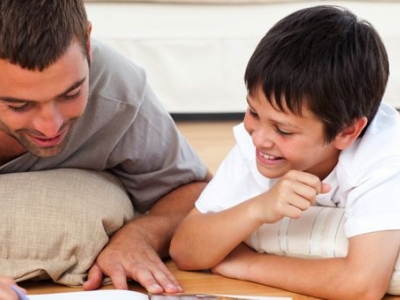
Help, my kids are fighting ... again!
When it comes to children, not all arguments are the same - and our response as parents needs to reflect that reality.
You hear the sounds of thunder and screaming, hoping it was the kids next door ... then reality hits and you recognise the voices and realise it’s your own children fighting again.
Oh how I have wished there was a quick, easy fix to snap our fingers and problem solved – like changing the TV channel. Unfortunately, it isn’t that simple and there is no one solution. Keep in mind this will not last forever, but in the meantime there are a few parenting tools you might find helpful. To help add to your parenting tool kit, I’ve described three different common scenarios with fighting children, and a few tips on how to respond.
1. Fight type 1: Conflict resolution
When children argue, our temptation as adults is to want to solve the conflict, get the right and wrong sorted or stick up for the quieter and gentler child! This is called a parent trap.
Rather we should place primary responsibility for solving sibling conflicts on those involved—the kids! In other words, parents stay out of it. Avoid the temptation to always act as judge and jury to solve an argument, trying and figure out who started it, and who did what.
As parents we need to equip and empower them to solve conflict themselves. Let them see you working out disagreements in a cooperative and nonviolent manner. Share ideas on how the conflict might be resolved in a healthy manner. Make sure there's clear rules or boundaries for sorting out conflict. For example, no yelling, no put downs, listen to other person, consider each other's feelings.
2. Fight type 2: Attention seeking
Have you ever noticed how kids start a fight just as you start talking on the phone or start a conversation with your spouse? It’s like they fight to get our attention and control. When we as parents yell or lecture “who started it,” “knock it off,” or “say sorry and shake hands,” we are doing more thinking and worrying than our kids!
Soon the children learn, on an unconscious level, that they can control the colour of their parents’ faces, the volume of their voices and mood! This is negative way to grab people’s attention and affection.
One day my children were fighting all the way home, in the car from school. Parent exhaustion hit me! I tried very hard to keep my mouth shut and keep my cool whilst trying to solve the problem. I decided to pull the car over a few streets away from home, told them they could walk the remainder of the way home. I needed to have some peace and quiet (we lived in a very safe neighbourhood). Oh the bliss I had for the last few minutes of driving, and I got some extra time to go inside the house, make a cuppa and recover.
In another context we were on a long car trip interstate to visit family; the attention grabbing arguments went on and on. My husband and I pulled over to the side of the road, we told our children it was too dangerous to continue as we were so distracted with their fights. We need to rest and get some peace – they were welcome to let us know when arguing had finished and we would continue driving.
3. Fight type 3: Feeling inadequate
A third reason siblings fight is because one child in the family feels that the parents or other adults see him or her as being the “black sheep” of the family. He or she reasons on an unconscious level, “I’ll never be as good as my brother. Everybody thinks he’s so smart ... He’s such a goody-two-shoes ... I hate him!”
In most cases, the child doesn’t really hate his or her sibling. Instead, he or she hates the feeling of not measuring up in the eyes of the parents. The parents may not view the child in this manner. Nevertheless, the most important point is that the child “feels” it to be so.
Tips to help avoid this problem:
- Don’t compare kids with each other. For example, never say “Why can’t you just sit and be good like your brother?”
- Celebrate your children’s differences and focus primary energy on helping them identify and build upon their strengths. The more we try to make our kids the same, the more frustrated and angry everyone in the family becomes.
In our house, we often played a simple mealtime game of saying: “One thing I like about …” we all took a turn at saying what we liked about each person at the table. This helped us to celebrate the differences in each other.
My last tip would be in the moment of tension, conflict and arguing – don’t try to teach or train. Few of us are in the best emotional state to learn anything. Wait for a teachable moment, ensure you have a genuine strong heart to heart connection with your child. Then together reflect back on the situation and do some training with your child or spouse! Remember to focus on of the heart not just the behaviour.
For more articles from Growing Faith, subscribe to our monthly e-newsletter.
To hear about the latest books and resources from Youthworks Media, subscribe here.







